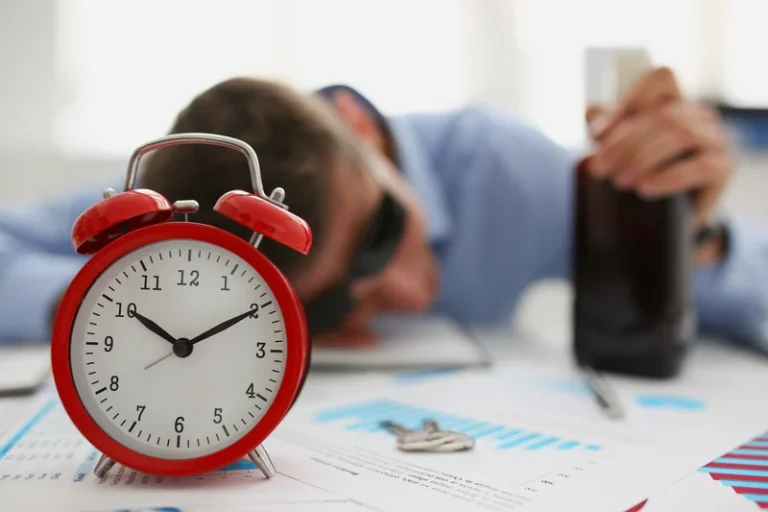
Contrary to popular belief, an individual struggling with alcoholism doesn’t have to hit rock bottom or eagerly seek help for treatment to make a difference. In fact, intervention and support can play a crucial role in motivating someone toward recovery. It’s because tackling addiction requires a comprehensive recovery plan that addresses the underlying factors contributing to it. You do not need to drink every day to have a problem with alcohol. Heavy drinking is defined by how much alcohol you have in a day or in a week. As people grow older, they may also find that they react differently to alcohol.

Start your health journey today
Addiction works in the same way, affecting both our physical and mental health. Contrary to popular belief, not all alcoholics guzzle booze 24/7. Many alcoholics may have periods of sobriety or only drink on certain occasions. While it’s true that psychological and emotional issues can contribute to alcohol misuse, they don’t automatically lead to full-blown alcoholism. Many people turn to alcohol as a coping mechanism for their struggles, but not everyone becomes dependent.
- Furthermore, combining caffeine and alcohol can lead to poor decisions due to the contrasting effects of the substances on the nervous system.
- Similarly, the physical volume of different alcoholic beverages may vary, but the actual alcohol content determines the effect on the body, regardless of whether they are mixed or taken separately.
- Below, let’s debunk some common alcohol myths and share some science-backed truths to consider—before you decide to order that next cocktail.
- If you’re aware of the risks, you’re generally fine to drink alcohol in moderation.
Individualized, evidence based treatment, to fit your needs.

What is a healthy range of drinking for men and women age 65 years or older? Experts recommend no more than 3 drinks in a single day or no more than a total of 7 drinks a week. A drink is defined as 12 fluid ounces (355 mL) of beer, 5 fluid ounces (148 mL) of wine, or 1½ fluid ounces (45 mL) of liquor. “Alcohol misuse,” “someone with an alcohol use disorder,” and “rhinophyma” are more current and less stigmatizing terms. Alcohol use disorder is a complex medical condition affecting the brain. It involves an inability to control your alcohol consumption, regardless of its negative effect on your life or health.

Actions that May Reduce Your Risk and Help …
Or they may take medicines that make the effects of alcohol stronger. Some older adults may start to drink more because they are myths about alcoholism bored or feel lonely or depressed. Being able to have a few drinks without feeling any effects may seem like a good thing.
It’s common for people to have a casual relationship with alcohol. However, this attitude may contribute to many myths about alcohol and alcohol use disorder. Drinking tends to produce higher blood alcohol concentrations in women than men because of a difference in body weight and composition. This myth can especially be harmful if it causes you to drink more than you can handle — https://ecosoberhouse.com/ so always pay attention to the alcohol content in your drinks and be honest with what your body can manage. Green tea’s antioxidants also do their „dirty work“ by scavenging for free-radicals in the cells of your body, protecting and preventing damage to tissues (like skin!). But just as no single food or beverage can cure cancer, green tea is not equivalent to Botox in a bottle.

Busting Common Myths About Alcohol
- Alcohol can deliver a certain amount of relief by slowing down the brain and nervous system.
- Alcohol interferes with normal brain activity, no matter how you feel when you drink.
- It can also cause increased dehydration, sleep disruption and even heart issues.
- In fact, alcohol can make sleep worse and menopausal symptoms like hot flashes and night sweats more pronounced.
Awareness of the actual effects of alcohol can inform better decision-making in cold environments. In truth, any amount of binge drinking (drinking to get drunk) is a threat to your safety and health. Intoxicated people are more likely to injure themselves or get into accidents.
- However, it’s a misconception to believe that this prevents intoxication.
- However, there’s limited research showing the efficacy of this form of treatment.
- Take our short alcohol quiz to learn where you fall on the drinking spectrum and if you might benefit from quitting or cutting back on alcohol.
- While a person may prefer one type of drink over another, once alcohol reaches your bloodstream there’s no difference.
- We often toast to special occasions, and that glass of red wine may even have health benefits.
- And when your ability to make decisions is impaired, you’re no longer in control.
This suggests that alcohol impairs their ability to pick up on social cues that others may be uninterested or angry. However, while reduced inhibitions might make you more talkative and outgoing, it doesn’t necessarily mean you’re socializing in the healthiest way. It’s easy to think that alcohol can help you fall asleep faster. That’s because alcohol is a nervous system depressant, so it may be easier to fall asleep.
- The reasoning behind this idea is that red wine contains an antioxidant compound known as flavonoids.
- If you’re at the puking point, there’s likely already too much alcohol in your body’s system to escape a hangover the next day.
- The alcohol is still affecting their bodies, even if they do not immediately feel it, and they are still at higher risk of falls, cognitive impairment and other negative effects because they are drinking more.
- Critical decision-making abilities and driving-related skills are already diminished long before a person shows physical signs of intoxication.

If to sip a cup of tea to relax before bed, look for teas that are clearly labeled „caffeine-free“ on the front of the pack, or check Nutrition Facts labels closely for 0 mg caffeine per serving. Yes, it has some great (potential) health benefits, but if you’re drinking it to lose weight, you’re going to be disappointed. Regardless of the guidelines, drinking can be problematic if it results in negative feelings, choices, or outcomes, which is highly individualistic. In general, for brain health, I recommend people drink a maximum of one serving of alcohol once or twice a month.






